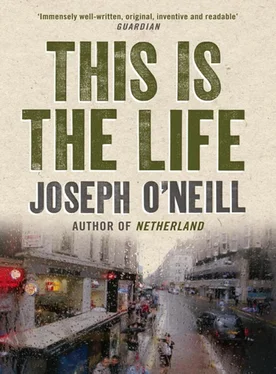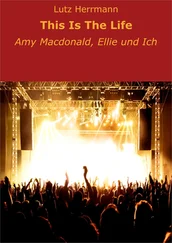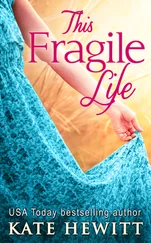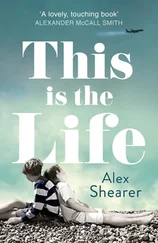I think it is clear from what I have said that the last thing anyone could call me is a busybody. I never secretly steam open envelopes to read their contents, or press a glass to the wall to eavesdrop on conversations in adjoining rooms. My life is complicated enough as it is. I am at pains to say this because, contrary to my usual habits, I spent the evening in Donovan’s house reading his private notes, notes he had written for his eyes only, and listening to tape-recordings he had made for his ears only.
I could not help it. I was looking for something to drink when I came across a pile of sky-blue notebooks, tall rectangular ones of the type preferred by barristers. What had happened was that I had found no liquor downstairs, not a drop. When I opened the door to the drawing-room I received a shock. The furniture was spookily draped in white sheets, to protect it from dust I presume, and phantomish sofas and armchairs hovered in the half-darkness. I quickly pressed the light switch and four or five lamps scattered around the room illuminated simultaneously. It was a little startling, but looking around I spotted a drinks cabinet and took heart. As I walked across my footsteps clopped like hooves on the long floorboards: the rugs had been removed too, it seemed, and stored away somewhere. Anyway, the drinks cabinet proved a dead end. The only liquid I found was a neglected inch of pale sherry in one of the crystal decanters. I did not feel like drinking sherry, I wanted something a little stronger, like a glass of whisky with rocks of ice in it. So I went to the kitchen to have a look there, but again, no whisky, no ice-cubes, no anything for that matter. The multi-storey refrigerator, installed with racks, trays and receptacles for every kind of foodstuff, was bare and greasy: a dried-out half of an onion, a tub of margarine flecked with Marmite. Elsewhere, a stack of delicately interdependent washing-up — spoons, cereal bowls, coffee cups — was poised in the sink. A nasty smell arose from somewhere. No one had been around for weeks, that much was clear.
I decided to try my luck upstairs. By this time my craving was more than a simple thirst for alcohol, it was a profound, irrational need for some consolation before I went back home, some compensation for my spoiled evening. For some reason I had taken it into my head that the outing had to have some tangible benefit, and that the benefit should take the form of a drink (this was, I hasten to say, not like me at all — normally I can take or leave alcohol as I please). So I continued my search. It was impossible that there was no whisky, or gin, or cognac, anywhere in this huge house. But the first floor seemed dry as well, with dust coating everything, and walking through the abandoned, creaking hallways, I felt I was treading the sidewalk of one of those corny ghost towns you see in Westerns, the ones with tumbleweed rolling down the main street.
But then I opened the door on a room where the atmosphere was different. If every ghost town has its stubborn old-timer who refuses to leave, who sits tight with his mule in an old shack on the mountainside, certain that the geologists are wrong, that a bonanza waits in the rock, then this room was that shack. It showed clear signs of life. Books were opened and marked with yellow tabs, newspapers lay crinkled on the floor, and a shallow pile of sky-blue notebooks sat up on the desk. Clearly this was Donovan’s study. Periodicals and law reports lined the walls: the Common Market Law Reports, Weekly Law Reports, Recueil de la Jurisprudence de la Cour, Cambridge Law Journal and so forth. Then I spied it. In the corner, alongside an overflowing waste-paper basket, was a bottle of Bushmills. I congratulated myself: I knew it. I knew I’d find something if I kept looking.
I found a glass in the bathroom and poured myself a double shot. It was nine o’clock, and although the cloudburst seemed over, rain continued to fall, making a racket on a plastic surface somewhere. There was no point in rushing back home, not in that weather. I leaned back in Donovan’s functional chair and drank deeply. That’s better, I thought, as the liquor made a hot path through my insides. That’s more like it.
It was about then, after the first, satisfying mouthful, that my eyes focused on the notebooks. There were about four or five of them in a stack. My thoughts elsewhere, I took one down and fluttered the pages with my thumb. I was not trying to read anything, I was simply fidgeting with the first thing that came to hand. Whenever I make myself comfortable with a drink, I compulsively reach out to manipulate the nearest object I can get hold of — a newspaper, or the channel controller for the television. That night at Donovan’s was no different. The notebook that I picked up — well, to my mind it was no different to a magazine you instinctively pick up at the barber’s or the dentist’s. How was I to know what it contained?
Although I was not concentrating, although the pages moved under my thumb in a blur, I did notice that there was something unusual about them. There was an inordinate number of lists, and I thought I saw entire sentences, whole paragraphs even, written down in capital letters. Then there was the question of the handwriting. I knew Donovan’s handwriting, a scribble in biro that only became legible with practice — how many tens of thousands of his words had I read in my time? — I knew his every quirk in that department. The script that I saw in these pages was similar to his but nevertheless different; the words were too legible, the lettering too neat and tidy. The script, in the blue-black ink of a fountain pen, belonged to someone taking care about presentation, someone making a calligraphical effort. That was not like Donovan; the Donovan I knew was a scrawler.
All in all, then, the autography on the pages I saw did not strike me as his, nor did their contents appear to square with what one might expect to see in an international lawyer’s notes. There was something different here, something unusual. I decided to take a closer look.
The first page of the top notebook had a date written at the top right corner: 23 September 1988. (Leafing through the pages, I realized that the entries in the book were chronological — and that the books themselves were piled in calendrical sequence.) And then came the strange part: a row of squares was drawn along the top half of the page; below that row was a row of triangles, and below both of these was a further row of triangles placed on top of squares: they looked like children’s drawings of detached houses, only without the little windows and front door you normally see. Now, in most circumstances diagrams like these would fall into the category of mere doodles; but here the drawings were so systematically and carefully arranged that I received the clear impression that they represented something else — an exercise of some kind.
Why would Donovan want to practise drawing these kindergarten houses — if that was what they were?
I turned the page. More diagrams, this time slightly more complex: a series of polygons rolled down the page, each with more sides than the last. At the top was a pentagon, below that a hexagon, and so forth.
I did not even try to understand that. When it comes to spatial or mathematical IQ tests, to detecting the common feature in a series of numbers or shapes, I always emerge with a dunce’s score. I am lost when faced with this sort of problem, my brain runs on to the rocks. So instead of foundering on these mysteries, I poured myself another drink and turned the page.
Page three of Donovan’s notebook was dated 24 September 1988. A row of words descended the page:
A
aardvark
aardwolf
Aaronic
aasvogel
Читать дальше
Конец ознакомительного отрывка
Купить книгу












